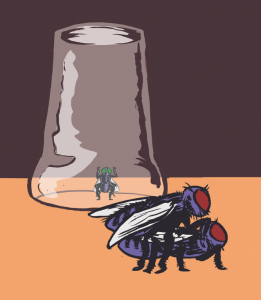WEDNESDAY, 3 OCTOBER 2012
A Weighty Problem
What weighs in at 287 million tonnes, the equivalent of more than 5400 Titanics? It is in fact the combined weight of the entire world’s population. Of this weight, 15 million tonnes are derived from people classed as overweight, and an additional 3.5 million tonnes from those who are obese. Researchers at the London School of Hygiene and Tropical Medicine believe that such data is a better way of measuring our impact on the planet, rather than just counting people. The team found that North America had the highest average weight, contributing to more than a third of global obesity despite comprising only 6 per cent of the world’s population. Using 2005 data on body mass index (BMI) and average heights from the World Health Organisation, the team calculated the average body mass for people in various countries, then factored in population data to give the total weight of adult humans as 287 million tonnes. If all countries had the BMI distribution of America, the world biomass increase of 58 million tonnes would equal a population increase of 935 million people with the energy requirements of 473 million adults. Increasing population BMI could increase world food energy demands equivalent to an extra half a billion people, implying that overconsumption could lead to major problems in sustainability. Mrinalini Dey
Evolution Rocks
Does music undergo Darwinian evolution? Scientists from Imperial College London show that it does, albeit not indefinitely. The group created a Darwinian music engine, called DarwinTunes, which maintains a population of short audio loops and periodically ‘mates’ them in a manner analogous to sexual reproduction. During this process, the musical ‘genome’ of each loop (which defines for example note placement and instrumentation) is randomly combined with that of the partner, mimicking genetic recombination. Just as in biological mutation, the newly created daughter loops contain new, random genetic material. The daughter loops are then played to a population of website users, who listen to the samples and rate the loops’ aesthetic qualities. These ratings determine which loops in a given generation will be allowed to mate and reproduce and which have to die. The scientists found that the audio loops quickly evolved from noise into music. After 500-600 generations however, evolution stopped and reached equilibrium as recombination and mutation became more and more deleterious, breaking up pleasing combinations that had previously been achieved. Music has constantly evolved over the centuries, and as this experiment shows we, the consumers, have played a creative role in shaping this. Jannis Meents
Sexual-Frustration Drives Flies to Drink
Research has shown that sexually deprived male fruit flies consume more alcohol than those who are fulfilled. Scientists from the University of California split their unwitting males into two groups. One group mated with receptive virgins and the other with recently mated females, who promptly reject even the most persistent of advances. The males were then given a choice of food; one laced with ethanol and one without. The spurned group showed a significant increase in preference for the ethanol-laced food. These observations shed light on the interactions between addictive behaviour and the reward pathways of the brain. The brain rewards activities such as sex and eating by releasing “pleasure chemicals” such as dopamine, because these actions benefit the survival of the species. However, these pathways can be hijacked by drugs such as alcohol to give a “high”. In this study, the deprived flies had lower levels of a molecule called neuropeptide F (NPF) than the fulfilled group. This molecule sated the brain’s reward pathways as a result of their sexual encounters and so the urge to seek rewards from alcohol was diminished. Keren Carss



